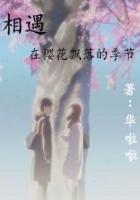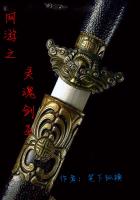Either they are true, and the play-house atmosphere (as Prynne says it was) that of Gehenna: or they are untrue, and the mere fruits of spite and envy against more successful poets. And what does that latter prove, but that the greatest poet of his age (after Shakspeare has gone) was not as much esteemed as some poets whom we know to have been more filthy and more horrible than he? which, indeed, is the main complaint of Jonson himself. It will be rejoined, of course, that he was an altogether envious man; that he envied Shakspeare, girded at his York and Lancaster plays, at 'The Winter's Tale' and 'The Tempest,' in the prologue to 'Every Man in his Humour'; and, indeed, Jonson's writings, and those of many other playwrights, leave little doubt that stage rivalry called out the bitterest hatred and the basest vanity; and that, perhaps, Shakspeare's great soul was giving way to the pettiest passions, when in 'Hamlet' he had his fling at the 'aiery of children, little eyases, that cry out on the top of question, and are most tyrannically clapped for 't.' It may be that he was girding in return at Jonson, when he complained that 'their writer did them wrong to make them complain against their own succession,' i.e. against themselves, when 'grown to common players.'
Be that as it may. Great Shakspeare may have been unjust to only less great Jonson, as Jonson was to Shakspeare: but Jonson certainly is not so in all his charges. Some of the faults which he attributes to Shakspeare are really faults.
At all events, we know that he was not unjust to the average of his contemporaries, by the evidence of the men's own plays. We know that the decadence of the stage of which he complains went on uninterruptedly after his time, and in the very direction which he pointed out.
On this point there can be no doubt; for these hodmen of poetry 'made a wall in our father's house, and the bricks are alive to testify unto this day.' So that we cannot do better than give a few samples thereof, at least samples decent enough for modern readers, and let us begin, not with a hodman, but with Jonson himself.
Now, Ben Jonson is worthy of our love and respect, for he was a very great genius, immaculate or not; 'Rare Ben,' with all his faults.
One can never look without affection on the magnificent manhood of that rich free forehead, even though one may sigh over the petulance and pride which brood upon the lip and eyebrow, 'Dowered with the hate of hate, the scorn of scorn, The love of love.'
A Michael Angelo who could laugh, which that Italian one, one fancies, never could. One ought to have, too, a sort of delicacy about saying much against him; for he is dead, and can make, for the time being at least, no rejoinder. There are dead men whom one is not much ashamed to 'upset' after their death, because one would not have been much afraid of doing so when they were alive. But 'Rare Ben' had terrible teeth, and used them too. A man would have thought twice ere he snapt at him living, and therefore it seems somewhat a cowardly trick to bark securely at his ghost. Nevertheless it is no unfair question to ask--Do not his own words justify the Puritan complaints? But if so, why does he rail at the Puritans for making their complaints? His answer would have been that they railed in ignorance, not merely at low art, as we call it now, but at high art and all art. Be it so. Here was their fault, if fault it was in those days. For to discriminate between high art and low art they must have seen both. And for Jonson's wrath to be fair and just he must have shown them both. Let us see what the pure drama is like which he wishes to substitute for the foul drama of his contemporaries; and, to bring the matter nearer home, let us take one of the plays in which he hits deliberately at the Puritans, namely the 'Alchemist,' said to have been first acted in 1610 'by the king's majesty's servants.' Look, then, at this well-known play, and take Jonson at his word. Allow that Ananias and Tribulation Wholesome are, as they very probably are, fair portraits of a class among the sectaries of the day: but bear in mind, too, that if this be allowed, the other characters shall be held as fair portraits also.
Otherwise, all must he held to be caricature; and then the onslaught on the Puritans vanishes into nothing, or worse. Now in either case, Ananias and Tribulation are the best men in the play. They palter with their consciences, no doubt: but they have consciences, which no one else in the play has, except poor Surly; and he, be it remembered, comes to shame, is made a laughing-stock, and 'cheats himself,' as he complains at last, 'by that same foolish vice of honesty': while in all the rest what have we but every form of human baseness? Lovell, the master, if he is to be considered a negative character as doing no wrong, has, at all events, no more recorded of him than the noble act of marrying by deceit a young widow for the sake of her money, the philosopher's stone, by the bye, and highest object of most of the seventeenth century dramatists. If most of the rascals meet with due disgrace, none of them is punished; and the greatest rascal of all, who, when escape is impossible, turns traitor, and after deserving the cart and pillory a dozen times for his last and most utter baseness, is rewarded by full pardon, and the honour of addressing the audience at the play's end in the most smug and self-satisfied tone, and of 'putting himself on you that are my country,' not doubting, it seems, that there were among them a fair majority who would think him a very smart fellow, worthy of all imitation.
Now is this play a moral or an immoral one? Of its coarseness we say nothing. We should not endure it, of course, nowadays; and on that point something must be said hereafter: but if we were to endure plain speaking as the only method of properly exposing vice, should we endure the moral which, instead of punishing vice, rewards it?















